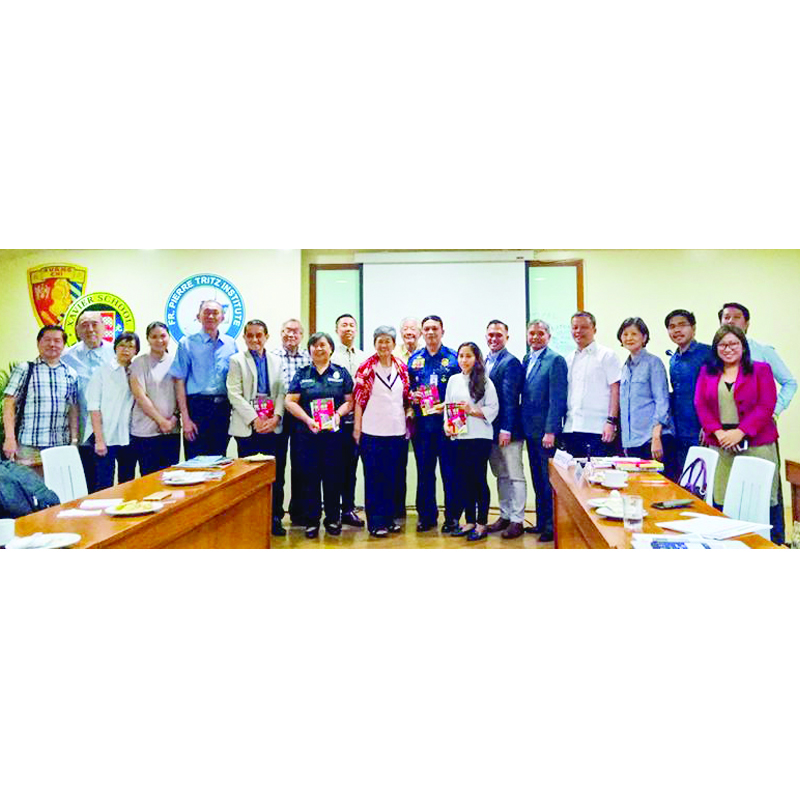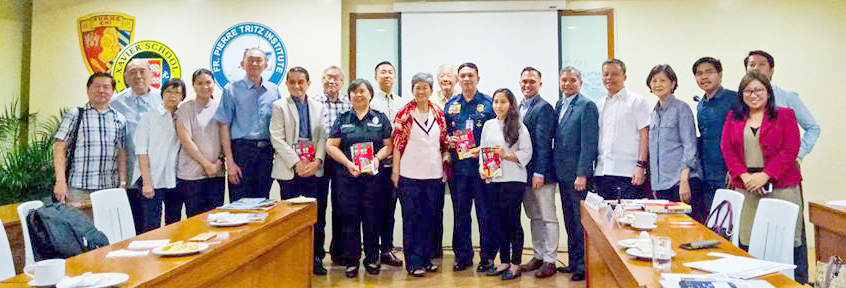
The past decade witnessed a massive influx of Chinese nationals to the Philippines, coinciding with the phenomenal rise of China as a global economic power. The Bureau of Immigration reported that from January 2016 to May 2018, some 3.12 million Chinese citizens came to the Philippines. More than 70 percent – or 2.4 million – are from mainland China, the rest from Hong Kong, Macau, and Taiwan.
When President Duterte made a shift to China as part of the government’s independent foreign policy, the Philippines became one of the most favored destinations of Chinese nationals.
In 2017 alone, government figures show that 1.38 million Chinese nationals came, compared to 1.02 million in 2016. In the first six months of 2018, around 800,000 Chinese nationals arrived. If this trend continues, an estimated 1.6 million Chinese visitors are expected for 2018.
Their reasons for coming to the Philippines, their impact on the local economy and communities, and new government policies on the newcomers were the subject of discussion by a focus group organized by the Philippine Association for Chinese Studies.
The discussion held at Xavier School in Greenhills, San Juan on Sept. 4 attracted participants from the academe, government and private sectors. Father Aristotle Dy, Xavier School president and PACS vice president, hosted the event.
Also discussed were the possible consequences of treating the ethnic Chinese as a homogeneous group regardless of ethnicity and citizenship. The group also examined the positive and the adverse impact of the rise of China on ethnic Chinese communities, Chinese nationals, on the perception of the mainstream society about China and its people.
Teresita Ang See, founding president of Kaisa Para Sa Kaunlaran and former PACS president, opened the session with a presentation on “The Rise of China and Changing Policies on Chinese Overseas.” She emphasized that beyond maritime disputes in the South China Sea, there are pressing problems in Philippines-China relations that urgently need appropriate actions by all parties concerned.
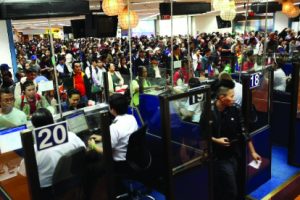
One of these problems is associated with the influx of new Chinese immigrants to the Philippines. She reiterated PACS board member Dr. Theresa Carino’s emphasis that the discussion group may raise issues and concerns about new Chinese immigrants. But it is not meant as China bashing or demonizing China. Rather, it is to find viable solutions or craft proposals to address problems.
One indication of the presence of new Chinese immigrants to the Philippines is the proliferation of chambers of commerce and associations organized by them.
Among these are the Philippine China Chambers of Commerce, Migrant Chinese Chamber of Commerce and Industry of the Philippines, Junior Chinese Chamber of Commerce, and the many hometown associations which recently formed chambers of commerce under their aegis – Jinjiang, Shishi, Jinjing and Nan-an.
Ang See said China, through its Overseas Chinese Affairs Bureau, encourages the establishment of these chambers of commerce as part of its One-Belt-One-Road initiative.
The proliferation of specialty shops and malls carrying China products and delicacies and catering only to new immigrants is another indication, and the construction of Philippines-China Friendship Arch in Quezon City in 2014, China Friendship Arch in Manila in 2015 and similar arches in Iloilo and Davao City also symbolizes the growing presence of new Chinese immigrants in the country.
While some newcomers have found good fortune through peaceful commerce and trade, others have fallen victim to fraudulent circumstances and suffered the consequences.
Tourists and holders of non-immigrant visas need to have work permits to work in the Philippines. Neither are Chinese immigrants allowed to ply retail trading. Those who stay illegally or cannot find work often become victims of criminal syndicates engaged in get-rich-quick schemes.
 Recently, the BI conducted four successive raids in shopping malls catering to China nationals and arrested 100 people and detained them in Intramuros until they could prove that their papers were in order. Some were found to have over-extended visas and fake Philippine passports, or using retirement visas but practicing retail trade.
Recently, the BI conducted four successive raids in shopping malls catering to China nationals and arrested 100 people and detained them in Intramuros until they could prove that their papers were in order. Some were found to have over-extended visas and fake Philippine passports, or using retirement visas but practicing retail trade.
But others had legitimate visas and permits. Among those detained were legitimate tourists who came to attend a family wedding.
The raids elicited an unprecedented number of adverse online posts. Some asked the Chinese government to retaliate against Filipina domestic workers in China and Hong Kong.
Online gambling
Online gambling syndicates are the most notorious in capitalizing on Chinese nationals who come to the Philippines to look for work. The victims are enticed first to gamble and when they cannot pay back their gambling debts, they are conscripted into criminal activities like drug trafficking or working in drugs laboratories, smuggling, and kidnapping for ransom.
Ang See pointed out the recent spate of casino-related kidnappings where victims who cannot pay their gambling debts are tortured, beaten up, even maimed.
Videotapes of these are sent to the victims’ families to force them to pay off. The Chinese Embassy is doing its best to warn its Chinese nationals by posting these videos on line.
Still others become targets of law enforcers’ extortion as a consequence of the Philippine government’s crackdown against illegal drugs as corrupt officials try to replace narcotics-related income.
But despite reported hardships and maltreatment from fellow Chinese nationals, Chinese nationals continue to be duped into coming to the Philippines. False advertisements proliferate, making too-good-to-be-true promises of anything the Chinese immigrants need, Ang See said.
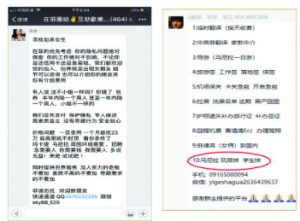
For a price, Chinese nationals can avail of many services that can ease their entry into local society. These include ready-to-use bank and credit cards, immigration assistance like lifting of hold-departure orders and removal of names from the BI’s watch list, purchase of condominium units, vehicles, hiring of drivers and maids, and even services of prostitutes.
It is important to see and understand patterns that lead to events resulting from the rise of China and its relation with the Philippines, said Dr. Federico Macaranas, Adjunct Faculty of the Asian Institute of Management.
Macaranas stressed that effective policy development must be preceded by understanding of the overall structure – economic, social, cultural, political – of the rise of China and Philippines-China relations by scholars and enthusiasts alike.
Scholars’ main task, therefore, is to learn how overseas Chinese could relate to these big structures, patterns and events. Patterns and events may change over time. But structures will always be there.
Thus, we need to look at the Chinese people not as enemies based on reportage of events but as products of structures in which they live.
Understanding these structures can provide a more nuanced understanding of the current behavior of old and new Chinese overseas amidst the rise of the new China.
But the new China is still guided by notions from the old Chinese civilization in the area of international relationships.
The old civilization describes China not as a country that intends to colonize but as a nation that only wants to trade based on Confucian tradition.
Thus, China can become the new power if it behaves according to precepts of the old Chinese Confucian society. Otherwise, it will behave like other major powers that are just hungry for economic power.

Describing the Philippine labor policy towards overseas Chinese workers, Cheryl Pisigan from the Department of Labor and Employment reported that from January 2016 to May 2018, DOLE issued 53,111 Chinese nationals Alien Employment Permits.
Around 60 percent – or 32,032 – received employment in the National Capital Region, mostly in administrative and support services activities for casinos and gaming industries.
Around 20 percent – or 10,560 – received permits to work in arts, entertainment and recreation activities, and 14 percent – or 7,754 – in the information and communication industry. The remaining six percent found work in other industries.
It is believed that the official figure reflects only a third of the actual number of Chinese nationals working in the Philippines, particularly in Metro Manila, especially if those who received special working permits issued by the BI are counted.
Chinese nationals prefer to apply for a SWP because the process is easier: fewer requirements and fees. And though SWP limits the period of employment to three months, it can be renewed for another three months’ stay.
The AEP allows an employment period of six months. If counted, these workers on SWPs could number 150,000 to 200,000. Their demand for housing in turn caused prices of real property units to soar in Metro Manila.
A BI representative says the cost of applying for SWPs is lower if Chinese workers apply directly to the bureau, not through an agency or broker. One of the unintended consequences of the influx of Chinese nationals is the involvement of some of them in the illegal drug trade.
According to Police Chief Supt. Albert Ignatius Ferro, director of the Drugs Enforcement Group of the Philippine National Police, there are three types of syndicates involved in illegal drug trade in the Philippines.
These are the Tsinoy-Chinese-Taiwanese, the African, and the Mexican Sinaloa syndicates. The Tsinoy-Chinese-Taiwanese group currently dominates illegal drug activities in the country, Ferro said.
At present, China is the major source of shabu entering the Philippines. Since the Philippine government launched its war on drugs in 2016, some Chinese nationals have been arrested and jailed.
However, a few of those jailed used prisons to continue the illegal drug trade. Ferro underscored that at present, the Philippines and China have a very strong cooperation against illegal drugs in terms of law enforcement exchanges, sharing of information, and capacity building.
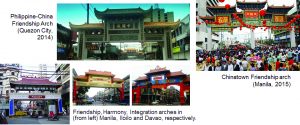 The focus group discussion generated many insights on the topic. Participants noted that Chinese nationals come because of business, tourism, education, employment, and permanent settlement.
The focus group discussion generated many insights on the topic. Participants noted that Chinese nationals come because of business, tourism, education, employment, and permanent settlement.
In a basket, however, there are always bad apples. Some of them are involved in illegal activities such drug trafficking, human smuggling, smuggling of commodities, and most recently kidnapping of Chinese nationals involved in gambling.
Bad apples aside, Austin Ong from think-tank Integrated Development Studies Institute noted that the Chinese overseas workers’ presence generates economic activity in the country.
Their average income is P30,000- P60,000 a month. They rent their homes, buy goods and services, and hire household staff. Thus, aside from economic benefits from Chinese investments, entry of Chinese nationals for employment here has multiplier effects that benefit the economy.
There is no doubt that China’s rise as a global economic power has encouraged its people to seek opportunities overseas for business, trade, tourism, employment and migration.
The Philippines has become one of their major destinations. However, involvement of some Chinese nationals in nefarious activities can affect Philippines-China relations over time. The discussion group candidly tackled these concerns to raise vigilance and support a call to action.
One conclusion is that Philippines-China relation is not defined by territorial disputes in the South China Sea but by a wide array of issues, such as the arrival of new Chinese overseas.
For her part, Ang See said all concerned government agencies should work together to continue to attract Chinese tourists and business travelers.
As well, measures should be in place to discourage unscrupulous people from coming for criminal reasons. She also urged the Chinese embassy here to assign permanent legal practitioners, law enforcement officers and even interpreters to help and protect Chinese nationals in trouble.
In conclusion, the presence of overseas Chinese and new Chinese migrants in the Philippines generates more positive than negative effects on our economy. Their presence also generates positive and negative social, cultural, and political repercussions.
The main challenge is for scholars and policymakers alike to identify ways to overcome the negative repercussions and take advantage of the positive effects to sustain and enhance Philippines-China relations.
